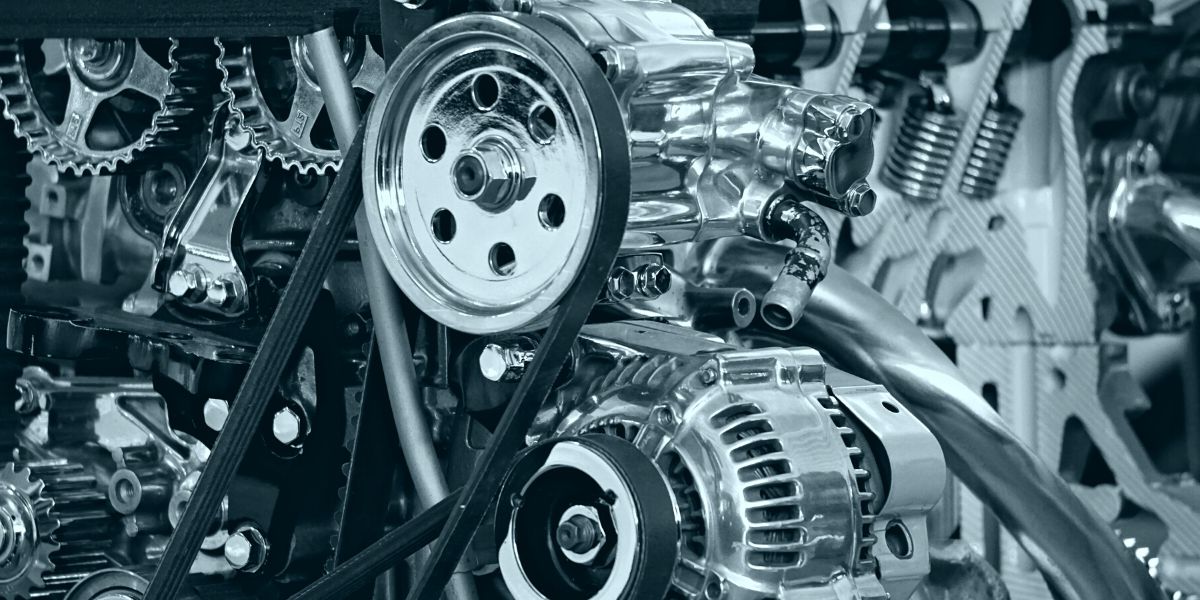Yes, you can wash your car engine, the answer is yes, you can. However, it’s important to take precautions to avoid damaging any electrical components or sensors.
Before you begin, it’s a good idea to consult your car’s owner manual to see if there are any specific instructions or warnings about washing the engine. If you’re not comfortable doing it yourself, you can always take your car to a professional car wash that offers engine cleaning services.
Make sure the engine is cool before you begin. A hot engine can cause water to evaporate too quickly, leaving behind water spots and potentially damaging the engine’s components.
Cover any exposed electrical components or sensors with plastic bags or waterproof tape to prevent water from getting inside. You can also use a degreaser to help loosen any dirt or grime on the engine, but be sure to rinse it off thoroughly with a hose or pressure washer.
Overall, washing your car engine can help keep it running smoothly and prevent rust from developing. Just be sure to take the necessary precautions to avoid damaging any sensitive components.
Do’s and don’ts of washing your engine
Washing your car engine can be a good way to keep it clean and running smoothly. However, there are some important do’s and don’ts to keep in mind when doing so. Here are some tips:
Dos
- Do use a degreaser or engine cleaner that is safe for your vehicle. Look for a cleaner that is specifically designed for engines and follow the instructions carefully.
- Do cover sensitive parts of your engine, such as the alternator, distributor, and air intake, with plastic bags or aluminum foil to prevent water from getting inside.
- Do use a low-pressure hose or pressure washer to rinse off the engine. Avoid using high-pressure water, which can force water into sensitive areas and cause damage.
- Do dry the engine thoroughly after washing it. Use a clean towel or air compressor to remove any remaining water.
Don’ts
- Don’t wash your engine when it is hot. Wait until it has cooled down to avoid damaging sensitive components.
- Don’t use harsh chemicals or abrasive materials to clean your engine. These can damage the paint, plastic, and metal surfaces of your engine.
- Don’t spray water directly into the air intake or other sensitive areas of the engine. This can cause water to get inside and damage the engine.
- Don’t forget to reconnect any hoses or electrical connections that you may have disconnected during the cleaning process.
5-step guide to washing your engine
Step 1
Prepare your engine: Before washing your engine, make sure it is cool to the touch. Cover any sensitive electrical components with plastic bags or wrap to prevent water damage. Remove any leaves or debris from the engine bay.
Step 2
Apply engine cleaner: Spray engine cleaner all over the engine bay, making sure to cover all areas. Let the cleaner sit for a few minutes to break down any dirt or grime.
Step 3
Scrub and rinse: Use a soft-bristled brush to scrub the engine bay, paying close attention to any heavily soiled areas. Rinse the engine bay with a hose, making sure to avoid any electrical components.
Step 4
Dry the engine: Use a clean microfiber towel to dry the engine bay thoroughly. Avoid letting the engine air dry, as this can cause water spots.
Step 5
Protect and shine: Apply a protectant or shine spray to the engine bay to help prevent future dirt and grime buildup. This step is optional but can help keep your engine looking clean and new.
FAQs washing your engine
What do you need to wash your engine?
You’ll need some basic supplies, including a degreaser, a scrub brush, a hose or pressure washer, and some rags or towels. It’s also a good idea to cover any sensitive components, such as the battery, with plastic bags or aluminum foil to protect them from water and chemicals.
Can you use a pressure washer to wash your engine?
Yes, you can use a pressure washer to wash your engine, but you need to be careful. Use a low-pressure setting and keep the nozzle at least a foot away from the engine to avoid damaging any sensitive components. It’s also a good idea to cover any sensitive components with plastic bags or aluminum foil to protect them from water and chemicals.
Can you wash your engine when it’s hot?
No, you should never wash your engine when it’s hot. Wait for it to cool down completely before you start washing it. Spraying water, especially cold water, onto hot metal can readily damage engine components.
How often should you wash your engine?
There’s no hard and fast rule for how often you should wash your engine. It depends on how dirty it gets and how often you drive in dusty or dirty conditions. As a general rule, it’s a good idea to wash your engine at least once a year to keep it in good condition.
Final thoughts 💭
Remember, a clean engine can help improve performance and fuel economy, and make it easier to diagnose and repair any issues. However, it’s important to be careful and follow the proper procedures to avoid causing any damage.
If you’re not comfortable washing your engine yourself, consider taking it to a professional detailer who has experience working with engines. They can ensure that your engine is cleaned properly and safely, without causing any damage or issues.





Leave a Reply